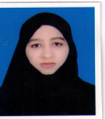Keynote Forum
Dr Piotr Karniej
Wroclaw Medical University (Poland), Department of Public Health
Keynote: Rationing of nursing care for organizational, financial and institutional reasons as an example of health exclusion in Europe.
Time :

Biography:
Dr Piotr Karniej, Ph.D., MBA is an economist, assist. professor of public health and health management with an experience of management of hospitals and private clinics. He is a Head of the Public Health Department and V-ce Dean of the Faculty of Health Sciences of the Wroclaw Medical University (Poland). Co-operates on the scientific level with the Catholic University of Valencia (Spain), Sapienza University in Rome (Italy) and others. He is an expert for evaluation of the projects financed by the European Union on a field of health. Member of the European Public Health Association (EUPHA), the European Society of Cardiology - Association of Cardiovascular Nursing & Allied Professions (ACNAP). V-ce President of the Polish Association of Health Care Managers (STOMOZ), member of the board of the Polish Association of Public Health (institutional member of EUPHA)
Abstract:
Nurses are the largest group of professionals within the global health care system, with a total of 19.3 million nursing and midwifery personnel in the world. The current and growing shortage of registered nurses (RNs) in health care systems is thus a global concern. In a fact, the European Commission has estimated that there will be a shortage of 590,000 nurses by the year 2020. In the United States, employment of RNs is expected to grow faster than the expected average for all occupations. Most countries within the Organization for Economic Cooperation and Development (OECD) have reported a nursing shortage, which is predicted to get worse because the current nursing population is aging. This shortage of RNs influences the delivery of health care and negatively affects patient outcomes; an insufficient nurse staffing level is associated with negative patient outcomes and decreased nurse job satisfaction. At the same time of this global nursing shortage, many nurses are considering leaving their job, profession or are out of the nursing workforce.
Understanding of health exclusion also in the context of access to professional nursing care allows us to express concern whether in the era of increasing awareness of patients, changing needs of elderly people, changes in the paradigm of fighting infectious and non-infectious chronic diseases, we have an adequate number of nurses? Research and practice prove that despite the steady increase in the number of nurses starting their careers, the number of nurses who are leaving to other professions increases at the same time. There is a need to define a new role of nursing in the context of contemporary public health challenges and expectations of employees in the health care sector



